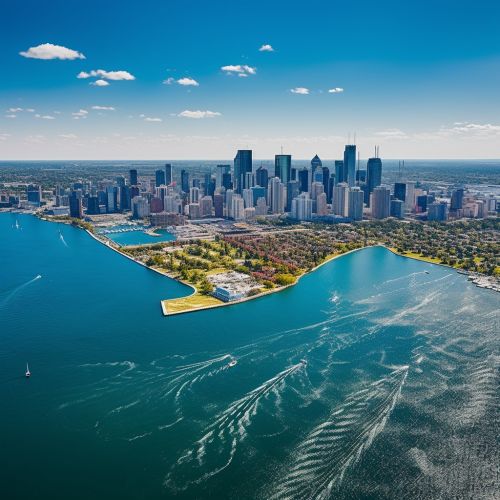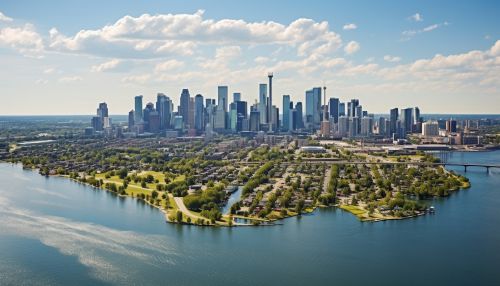Detroit
History
Detroit, officially the City of Detroit, is the largest city in the U.S. state of Michigan. The city was founded on July 24, 1701, by the French explorer and adventurer Antoine Laumet de La Mothe, sieur de Cadillac and a party of settlers. Detroit's history has been shaped by a series of significant events, including its role as a hub for the American automotive industry, its influence in music, and its economic and social changes.
Geography
Detroit is located in the southeastern part of Michigan on the Detroit River, which connects the Great Lakes system to the Saint Lawrence Seaway. The city has a total area of 142.9 square miles (370.2 km²), of which 138.8 square miles (359.4 km²) is land and 4.1 square miles (10.6 km²) is water.


Demographics
As of the 2010 census, there were 713,777 people residing in Detroit. The racial makeup of the city was 82.7% Black or African American, 10.6% White, 1.1% Asian, and 3.0% from two or more races. The city has a significant African American population, which has influenced its culture and history.
Economy
Detroit's economy is diverse and has its roots in manufacturing, particularly the automotive industry. The city is home to the "Big Three" U.S. automakers: General Motors, Ford Motor Company, and Fiat Chrysler Automobiles US. In recent years, Detroit has made efforts to diversify its economy and is now a significant center for finance, technology, and healthcare.
Culture
Detroit has a rich cultural history, particularly in music. The city is known for its contributions to jazz, hip hop, rock, and particularly the Motown sound. Detroit is also home to a number of museums, including the Detroit Institute of Arts and the Detroit Historical Museum.
Education
Detroit is home to several institutions of higher learning, including Wayne State University, the University of Detroit Mercy, and the College for Creative Studies. The city's public schools are managed by the Detroit Public Schools Community District.
Infrastructure
Detroit's infrastructure includes a mix of architectural styles, from the historic Art Deco skyscrapers to modern structures. The city's transportation system includes the Detroit People Mover, a light rail system, and several major freeways.
See Also
- History of Detroit - Economy of Detroit - Culture of Detroit - Education in Detroit
